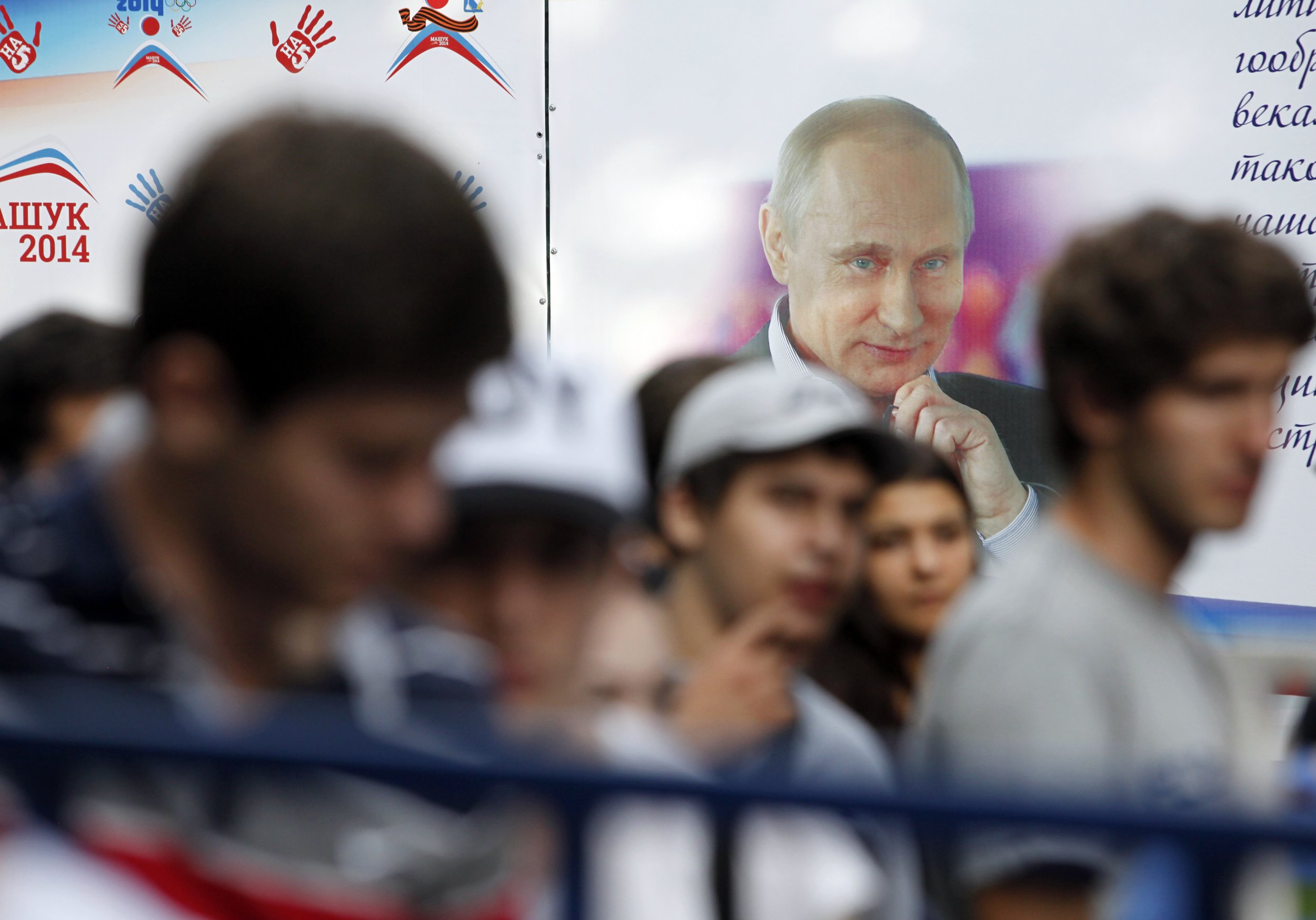
The Russia-backed separatists in Ukraine are on the defensive, fighting to hold on to strongholds like the cities of Donetsk and Luhansk. Meanwhile some 20,000 regular Russian troops have, along with artillery and heavy armor, massed at the border, seemingly awaiting a signal to go in. In Washington, the Obama administration's bandwidth now seems occupied by dueling crises in the Middle East—the unfolding debacle in Iraq, and the war between Israel and Hamas, now back on as the latest ceasefire, like those before it, dissolved.
If ever Russian President Vladimir Putin might move into Ukraine—not with more military intelligence and spetznaz forces but with thousands of regular troops—now would seem to be the moment. That prospect is concentrating minds in Washington, Europe, and at NATO headquarters in Brussels, where Secretary General Anders Fogh Rasmussen said on that a full-bore invasion would leave Moscow "isolated."
It might not happen—at least not yet. Military and political sources with knowledge of NATO's thinking believe that while the West needs to prepare for the possibility of an outright invasion, that still may not be Putin's favored course. For all of his (well earned) reputation as a ruthless combatant, Putin still calculates costs and benefits. He knows that an outright invasion would bring further and far more strict sanctions than those applied thus far. (Moscow responded to the West's post-MH17 move with restrictions of its own, banning the import of Western foodstuffs.) If it would come before NATO's annual summit in early September, it would inevitably draw a harsh response. No longer would Obama be able to deny that a new Cold War was on, as he did recently when announcing the new sanctions.
More importantly, NATO analysts believe that despite Putin's soaring approval ratings at home, there are domestic risks for him as well should he go in. Russia's oligarchs, the businessmen with close ties to the Kremlin, have "zero interest" in seeing this conflict get totally out of hand," said one intelligence source. Further, it's not at all clear that an outright invasion would be supported by the Russian populace—even one cloaked, as many analysts now assume it would be, in the guise of a humanitarian "peacekeeping" mission. Indeed, as Ian Bremmer, president of the Eurasia Group, a political risk consultancy points out, a recent poll by the Levada Center (one of the few credible polling organizations in Russia) showed that 51 percent of those queried opposed an invasion, while just 29 percent said they were in favor.
Putin has other options to keep eastern Ukraine unsettled and at war. He could, as Charles Fairbanks, a senior fellow at the Hudson Institute and former State Department official, notes, infiltrate platoon or company-sized units across the border to reinforce the separatists. A full-scale Ukrainian assault on the cities of Donetsk and Luhansk means urban warfare, which Putin's special forces are probably better equipped to fight than Army regulars. He could even try with Russian air power to establish a no fly zone over the east.
If Putin can find a way to keep the separatists supply lines open and bog Ukraine forces down in urban guerrilla warfare, time may be on his side. Winter comes early in eastern Europe, and Russia remains in control of Ukraine's gas supply—as well as much of western Europe's. Prior to the shootdown of MH17, Kiev's European partners were leaning on it to agree to a deeper "federalization" of the country—something that Putin wants, and that Ukraine President Petro Poroshenko bitterly opposes, according to European diplomatic sources. Moscow's calculation would be that that opposition would weaken when "everyone is freezing in the dark," as one European source said. Some sort of deal, in other words, is not entirely out of the question.
Still, no one in Brussels or in the Pentagon believes Putin is simply bluffing. "We know an invasion could come, no one's kidding themselves," says a source familiar with NATO's thinking. Asked how confident he was that Putin would refrain, the source said, simply, "I don't know. Maybe 50-50. We'll know soon enough."
Uncommon Knowledge
Newsweek is committed to challenging conventional wisdom and finding connections in the search for common ground.
Newsweek is committed to challenging conventional wisdom and finding connections in the search for common ground.
About the writer
To read how Newsweek uses AI as a newsroom tool, Click here.





